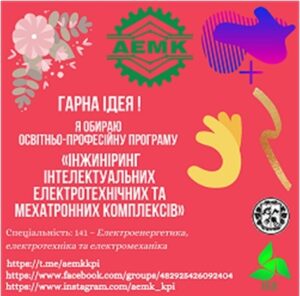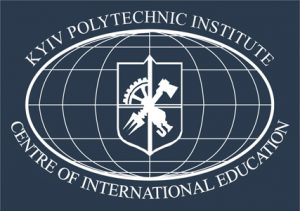Solid biofuel as an alternative to gas, as well as all aspects of its use, were discussed by the participants of the second discussion from the “Bioenergy of Ukraine” discussion cycle, held at the site of the largest business community of energy companies in Ukraine, Energy Club, in partnership with the State Energy Efficiency Agency. “Given the priority of energy security issues and the requirements of decarbonization, the search for ways to replace gas is urgent. Along with various options, a powerful direction is the development of the sphere of production and use of solid biofuel”, said Valery Bezus, opening the discussion. Stimulation of the development of bioenergy is provided for by the project of the National Renewable Energy Action Plan for the period up to 2030, which was developed by the Agency. “In the draft plan, we set, among other indicators, an indicative goal of achieving 35% of energy from renewable sources in heat supply by 2030. It is clear that the lion’s share of this indicator should be provided by bioenergy. First of all, the biggest perspective is precisely in the segment of solid biofuel,” the Chairman noted. The development of the use of solid biofuel requires the elimination of certain obstacles. To overcome them, the State Energy Efficiency Agency took the initiative and prepared a number of draft laws. “We quickly developed a draft law that provides for the possibility of calculating the tariff for producers of thermal energy from solid biofuel not only at the level of 90% of the tariff for thermal energy from gas, but also according to the standard procedure for calculating an economically justified tariff in case of economic distortion. The draft law has been developed with the Ministry of Energy and agreed with the Central Committee of the Russian Federation,” Valery Bezus said. In addition, the State Energy Efficiency Agency has legislative proposals for the creation of a competitive solid biofuel market and the establishment of a zero tax rate for CO₂ emissions for biofuel installations, which is in line with EU practice. Olena Lenska, Director of the Renewable Energy Development Department of the State Energy Efficiency Agency, explained this in detail. Olena Dadus, representative of the Ministry of Agrarian Policy and Food of Ukraine, spoke about the importance of solid biofuel for the agro-industrial complex, existing barriers and readiness to promote the development of this area. He supports the legislative initiatives of the State Energy Efficiency Agency and Georgy Heletukha, the chairman of the board of the Bioenergy Association. He is convinced that Ukraine should take an example from Lithuania, where the solid biofuel exchange operates, and about 80% of all heat energy in the country is produced from biomass. The expert described in detail the main barriers to the development of the segment. “The use of solid biofuel can be one of the solutions that will guarantee a reliable energy supply of communities,” said Gennadiy Ryabtsev, director of special projects of the PSYCHEYA STC, but cautioned: before switching to this type of fuel, all aspects must be carefully analyzed: community needs, required capacity, type and amount of fuel, logistics, reserve capacity and others. The successful experience of using biomass for heating was shared by representatives of the communities of Lviv, Vinnytsia regions, the cities of Rivne, Zhytomyr and Voznesensk. For example, in November 2021 in Zhytomyr, with the support of the Swiss State Secretariat for Economic Affairs (SECO), a new thermal power plant with a capacity of 7.1 MW of thermal energy and 1.2 MW of electrical energy was installed. It works on chips and helps to replace more than 6 million m3 of gas. “In Rivne a few years ago, a boiler plant with a capacity of 10 MW on wood chips was installed, and recently another one with a capacity of 20 MW”, said Volodymyr Lipko – Director of the Department of Economic Development of the Rivne City Council, adding that the new capacities help to replace the consumption of blue fuel. “We plan to reduce gas consumption by 30% thanks to solid biofuel. And we see the sense in this from the point of view of the possibility of saving budget funds and using available resources to meet the needs of the community,” said Victoria Baltser, secretary of the Voznesensk City Council. Representatives of the National Academy of Sciences of Ukraine, in their turn, outlined the importance of using engineering and industrial potential for the effective use of solid biofuel.
- Cathedra
- Admission
- Study
- Undergraduate education
- Master’s training
- Educational and professional program (masters)
- Educational components (masters)
- Questionnaire (masters)
- Schedules
- Material and technical support
- Diploma design
- Publications
- Academic mobility
- Employment
- Cooperation with employers
- Scientific student circles
- Non-formal/informal education (masters)
- Student internship
- Science
- Student Life
- International Activities
- Accreditation of educational programs
- News
- Official documents
- Contacts of the selection committee
English
- Cathedra
- Admission
- Study
- Undergraduate education
- Master’s training
- Educational and professional program (masters)
- Educational components (masters)
- Questionnaire (masters)
- Schedules
- Material and technical support
- Diploma design
- Publications
- Academic mobility
- Employment
- Cooperation with employers
- Scientific student circles
- Non-formal/informal education (masters)
- Student internship
- Science
- Student Life
- International Activities
- Accreditation of educational programs
- News
- Official documents
- Contacts of the selection committee
English
The segment of solid biofuel in matters of the development of national bioenergy must develop in clear accordance with the tasks of Ukraine in the field of energy security and the strategic course for decarbonization
© 2025 Кафедра автоматизації електротехнічних та мехатронних комплексів. Created for free using WordPress and
Colibri






Comments are closed